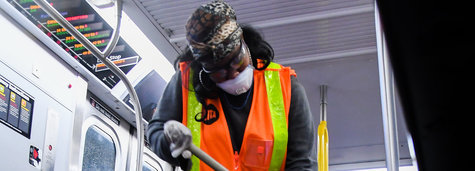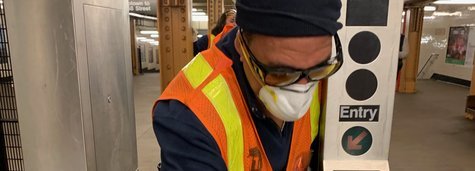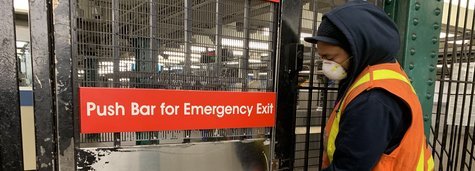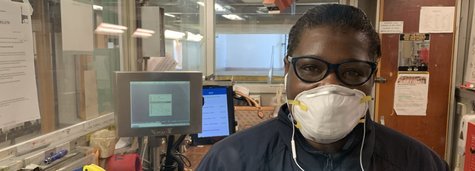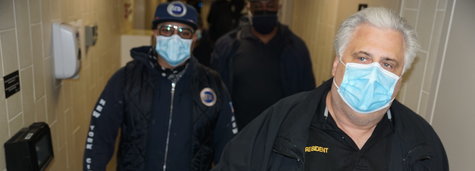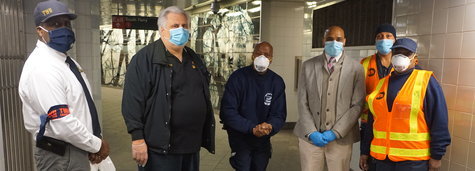Bringing Holiday Cheer, Museum Workers Want Some for Themselves
Rita Simon, who has two years on the job, agrees, "I love interacting with people – and you meet people from all over, especially at Grand Central. There are people coming from all over the world. I love meeting the kids, too.”
Simon adds there is another significant perk to her job: “I love my co-workers more than anything.
These retail workers—most in their 20s and 30s—enjoy their jobs. It’s just that in a city that grows more expensive by the day, their wages aren’t growing. Lead Sales Associates make $20 an hour while Sales Associates make $18 an hour. Transit Museum workers have no vacation time, no sick time, and no holiday pay. If they work on Christmas, they get paid. If not, they don’t.
"We are all right now officially part time. That's where we asked the TWU to help us out with the contract, to get [contractual language for] our full-time staff. That's our main goal,” said Ching.
While no one is full-time, some museum employees get the opportunity to work 40 hours when needed. There are no pick rights for locations, and seniority means nothing. Raises are given whenever the MTA gets around to it, which is rarely. One worker noted that when the minimum wage increases is when raises occur.
Museum employees do have one perk—an EPIC pass that gets them on the subway for free. Meanwhile, they work at a holiday destination where well-heeled customers think nothing of putting down $82 for a wooden toy train for toddlers. The MTA, a massive public authority, has a $20 billion yearly operating budget.
As the doors opened precisely at 10 AM Thursday, Ching, Jabid and Simon were all smiles as kids and parents rushed to see and take videos of the huge train display. There was the kind of cheer in the air that kicks off every holiday season. But for these workers, the best holiday gift would be some recognition where it counts -- in their bank accounts.


